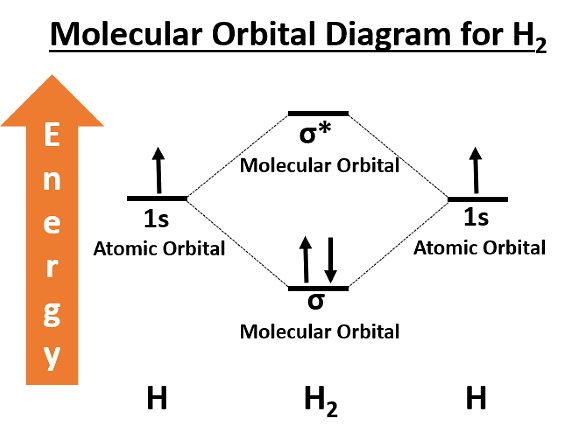The isoelectronic set of ions is :
- $\ce{N^{3-}, Li^{+}, Mg^{2+}}$ and $\ce{O^{2-}}$
- $\ce{Li^{+}, Na^{+}, O^{2-} }$ and $\ce{F^{-}}$
- $\ce{F^{-}, Li^{+}, Na^{+} }$ and $\ce{Mg^{2+}}$
- $\ce{N^{3-}, O^{2-} , F^{-}}$ and $\ce{Na^{+}}$
The Correct Option is D
Solution and Explanation
Top Questions on Molecular Orbital Theory
- Pair of species among the following having same bond order as well as paramagnetic character will be:
- JEE Main - 2026
- Chemistry
- Molecular Orbital Theory
- Among the species O$_2^+$, N$_2^-$, N$_2^{2-}$ and O$_2^-$ which have same bond order as well as paramagnetic in nature.
- JEE Main - 2026
- Chemistry
- Molecular Orbital Theory
Regarding the molecular orbital (MO) energy levels for homonuclear diatomic molecules, the INCORRECT statement(s) is (are):
- JEE Advanced - 2025
- Chemistry
- Molecular Orbital Theory
- Arrange the following in increasing order of bond order: (A) He\(_2^+\)
(B) O\(_2^-\)
(C) HF
(D) NO\(^-\)- CUET (PG) - 2025
- Chemistry
- Molecular Orbital Theory
- Which of the following is the ratio of 5\(^\text{th}\) Bohr orbit \( (r_5) \) of He\(^+\) & Li\(^{2+}\)?
- JEE Main - 2025
- Chemistry
- Molecular Orbital Theory
Questions Asked in JEE Main exam
- In a microscope of tube length $10\,\text{cm}$ two convex lenses are arranged with focal lengths $2\,\text{cm}$ and $5\,\text{cm}$. Total magnification obtained with this system for normal adjustment is $(5)^k$. The value of $k$ is ___.
- JEE Main - 2026
- Optical Instruments
Which one of the following graphs accurately represents the plot of partial pressure of CS₂ vs its mole fraction in a mixture of acetone and CS₂ at constant temperature?


- JEE Main - 2026
- Organic Chemistry
- Let \( ABC \) be an equilateral triangle with orthocenter at the origin and the side \( BC \) lying on the line \( x+2\sqrt{2}\,y=4 \). If the coordinates of the vertex \( A \) are \( (\alpha,\beta) \), then the greatest integer less than or equal to \( |\alpha+\sqrt{2}\beta| \) is:
- JEE Main - 2026
- Coordinate Geometry
- Three charges $+2q$, $+3q$ and $-4q$ are situated at $(0,-3a)$, $(2a,0)$ and $(-2a,0)$ respectively in the $x$-$y$ plane. The resultant dipole moment about origin is ___.
- JEE Main - 2026
- Electromagnetic waves
Let \( \alpha = \dfrac{-1 + i\sqrt{3}}{2} \) and \( \beta = \dfrac{-1 - i\sqrt{3}}{2} \), where \( i = \sqrt{-1} \). If
\[ (7 - 7\alpha + 9\beta)^{20} + (9 + 7\alpha - 7\beta)^{20} + (-7 + 9\alpha + 7\beta)^{20} + (14 + 7\alpha + 7\beta)^{20} = m^{10}, \] then the value of \( m \) is ___________.- JEE Main - 2026
- Complex Numbers and Quadratic Equations
Concepts Used:
Molecular Orbital Theory
The Molecular Orbital Theory is a more sophisticated model of chemical bonding where new molecular orbitals are generated using a mathematical process called Linear Combination of Atomic Orbitals (LCAO).
Molecular Orbital theory is a chemical bonding theory that states that individual atoms combine together to form molecular orbitals. Due to this arrangement in MOT Theory, electrons associated with different nuclei can be found in different atomic orbitals. In molecular orbital theory, the electrons present in a molecule are not assigned to individual chemical bonds between the atoms. Rather, they are treated as moving under the influence of the atomic nuclei in the entire molecule.
